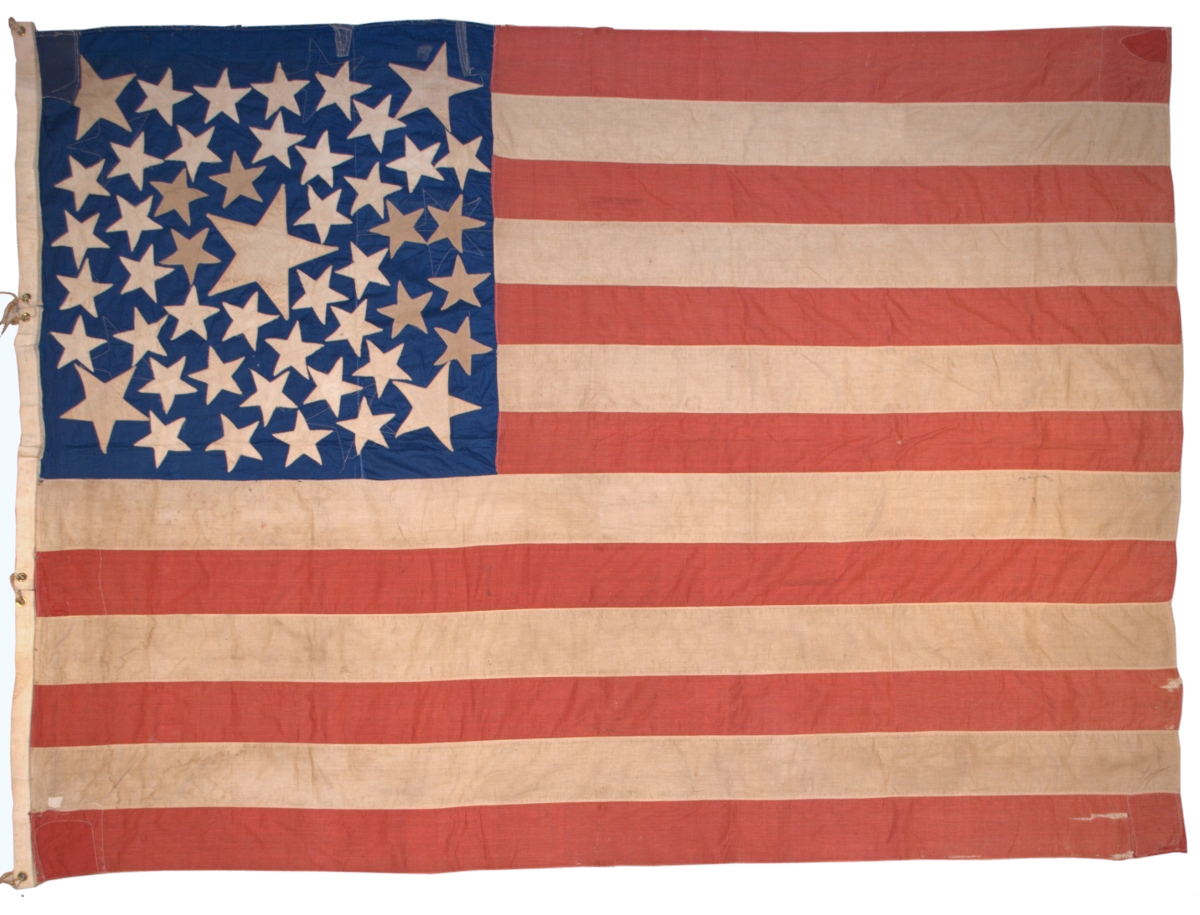
An outstanding example of homemade flag making in the
20th Century, especially rare on several counts. The
obverse of this beautiful flag consists of one of the
most scintillating star fields witnessed on the canton
of an American Flag. One large central star and four
medium stars, one in each corner, are surrounded by the
remaining 43 smaller stars, tightly packed amongst each
other in a jostling, seemingly random crowd. The
reverse
of this flag is also intriguing in that it possesses a
single center star, flanked at each point by a smaller
star, with tips aligned. This extraordinarily rare
pattern represents the addition of California as the
sixth state to grant Women's Suffrage in November, 1911.
It is the only surviving
suffrage flag in the stars and stripes pattern that
I am aware of.
One
exceptionally rare trait belonging to this flag is the
indication of a spiral pattern that adds hidden order to
the chaotic jumble of stars. Another exceptionally rare
trait belonging to this flag is its unique individuality
and folky character at a time when the vast majority of
flags were mass produced. It is very unusual to witness
such a distinct star pattern on a 48 star flag. Until
the introduction of the 48 star flag with the admission
of New Mexico and Arizona in 1912, no legislative
guidance specifically addressed the official pattern for
stars on the flag. Consequently, Americans freely
populated the starry constellations of their homemade
flags to their own whim. Coinciding with the introduction of the 48 star flag in 1912, President
William Howard Taft passed an Executive Order on June
24, 1912 establishing the official proportions of the
flag and the arrangement of the stars, being six
horizontal rows of eight, with each star pointing
upward. True to the spirit of American individuality,
the maker of this flag either ignored the legislated status quo or produced the flag before the executive
order, and thankfully arranged this gorgeous canton for
future generations of admirers to enjoy.
Due to the construction of the flag, the
aging of the material, and the fact that as time
progressed in the 20th century making homemade flags became much
less prevalent as mass production of flags increased, this flag
is most likely from an earlier era circa 1912-1930. It's
quite possible that the flag actually pre-dates the
July, 1912 introduction of the 48 star flag (and the
June, 1912 executive order legislating the layout of the
stars) with the flag being constructed in early 1912 in
anticipation of the impending statehood of New Mexico
and Arizona.
|

